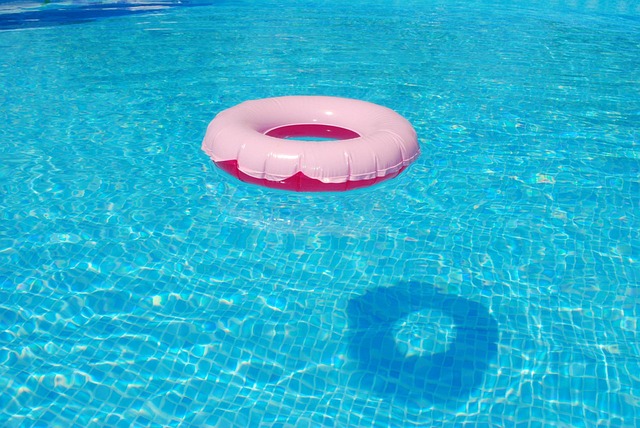Stress-related insomnia impacts millions globally, causing fragmented sleep and daytime fatigue. This condition leads to various health issues and reduced quality of life. Float therapy, a non-pharmacological approach using sensory deprivation, shows promise in improving sleep with float therapy by promoting deep relaxation and reducing stress. Regular sessions enhance sleep quality and duration.
“Stress-related insomnia can significantly impact overall health and well-being. In this article, we explore an innovative solution: float therapy. We delve into how this unique approach, often referred to as sensory deprivation therapy, can help manage stress and improve sleep patterns. By understanding the science behind its relaxing effects, you’ll discover practical tips for integrating float sessions into your routine as a natural way to enhance your sleep with float therapy.”
Understanding Stress-Related Insomnia and Its Impact
Stress-related insomnia is a common issue, affecting millions worldwide. It’s more than just difficulty falling asleep; it’s characterized by fragmented sleep and persistent fatigue during the day. This type of insomnia often stems from heightened stress levels caused by work pressures, financial worries, or personal challenges. As a result, individuals experience a range of symptoms, from irritability and anxiety to impaired concentration and increased health risks.
The impact of chronic stress-related insomnia can be severe, influencing overall well-being and quality of life. It may lead to difficulties in managing daily tasks, negatively affecting work performance and relationships. Moreover, prolonged sleep deprivation can increase the risk of various health conditions, including heart disease, obesity, and mental health disorders. Hence, addressing this specific form of insomnia is crucial for improving overall health and enhancing one’s ability to function optimally, as demonstrated by the growing interest in alternative therapies like float therapy for its potential benefits in promoting restful sleep.
Introduction to Float Therapy: A Unique Approach
Float therapy, also known as sensory deprivation or floating in a pod, is a unique approach to relaxation and stress relief that has gained significant attention for its potential benefits in improving sleep quality. This method involves entering a sealed float tank filled with warm water saturated with Epsom salt, allowing the body to float effortlessly. By blocking external stimuli, float therapy promotes a profound state of calmness and relaxation, offering an innovative solution for those struggling with stress-related insomnia.
The experience is designed to enhance mental and physical well-being. As the body drifts into a weightless state, muscles relax, and the mind becomes less distracted by everyday worries and stressors. This not only helps in managing sleep disorders but also improves overall mental clarity and focus. Many individuals find that regular sessions of float therapy can significantly enhance their ability to fall asleep faster and enjoy deeper, more restorative sleep, making it a promising method for those seeking alternative solutions for improving sleep with float therapy.
The Science Behind Float Therapy's Relaxing Effects
Float therapy, also known as sensory deprivation floating, involves immersing oneself in a solution of salt water and darkness for an extended period. The scientific community has explored the physiological mechanisms behind its profound relaxing effects on the mind and body. During a float session, the absence of visual and sensory stimuli triggers a stress response in the brain, which, paradoxically, leads to relaxation. This is because the brain reverts to primitive survival modes, slowing down heart rate, reducing cortisol levels, and enhancing alpha brainwave activity, all of which contribute to a deep state of calm.
Additionally, floating allows for complete muscle relaxation as the body is supported by the water, alleviating tension and pain associated with everyday life. This physical release can improve sleep quality by clearing out the mental clutter that often keeps people awake at night. Several studies have shown that regular float sessions can significantly enhance sleep duration and quality, making float therapy a promising non-pharmacological approach for managing stress-related insomnia.
Practical Tips for Integrating Float Sessions into Your Routine
Integrating float sessions into your routine is easier than you think. Start by scheduling a consistent time for your float sessions, much like you would any other important appointment. Consistency is key to reaping the full benefits of float therapy. Consider setting aside dedicated days each week that are solely for relaxation and self-care—a digital detox can go a long way in preparing your mind and body for sleep.
Before your session, ensure you’re well-hydrated and have eaten a light meal to avoid any discomfort during the floating experience. After your float, take time to transition slowly back into reality. Engage in some gentle stretching or meditation to help your body adjust before jumping straight into your next task. Regularly practicing these steps will make float therapy an accessible tool for improving sleep with each session.
Float therapy offers a unique and effective approach to managing stress-related insomnia. By immersing oneself in a sensory-deprived environment, individuals can experience profound relaxation, reducing stress levels and promoting better sleep patterns. The scientific evidence supporting its relaxing effects is compelling, and practical integration tips make it accessible for those seeking improved sleep with float therapy. Embracing this innovative method could be the key to navigating the challenges of insomnia and unlocking a more restful night’s sleep.
